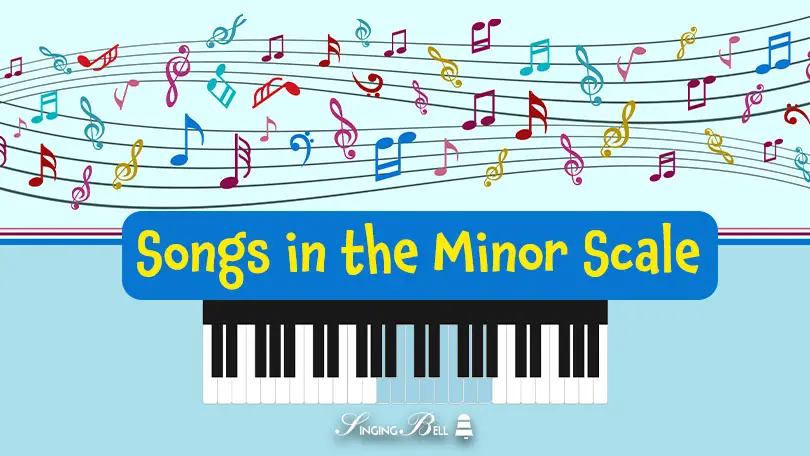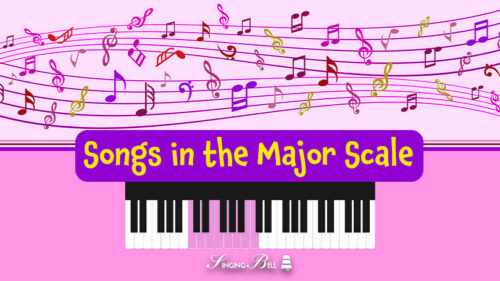All our songs in the minor scale – Traditional songs for kids + Christmas songs & carols

Besides the happiness that songs in the major scale can bring, songs in a minor scale can stir up human emotions. Although they are the minority of the music repertoire (no pun intended!), minor scale songs are often rich in emotion and can be used for a variety of purposes.
This blog post will explore some traditional songs for kids that fall within the minor scale, so that parents and teachers can provide children with a deeper understanding of music. We’ll look at some well-known tunes, as well as some lesser-known pieces of music, so that a variety of musical tastes can be accommodated.
So sit back and enjoy this exploration of traditional songs in the minor scale!
Table of Contents
- Explanation of the minor scale
- Commonly used chord progressions
- List of kids’ songs in the minor scale
- Importance and Benefits of learning songs in the minor scale
Explanation of the minor scale
The minor scale is a musical scale made up of seven notes, with the root note being “minor.” The intervals between each note of the scale are consistent. This creates an overall melancholy sound and is often used to create suspenseful or reflective music. It’s also used in many traditional songs for children, providing a unique perspective on childhood and family life.
Commonly used chord progressions
Commonly used chord progressions in the minor scale are the vi-IV-I-V (known as harmonic minor) and i-VI-III-VII (known as melodic minor). These chords are often used to add tension and drama to a piece of music, making it more interesting and memorable.
List of kids’ songs in the minor scale
Here’s our entire list of songs written in the minor scale.
Remember: each link in the list gets you to a post which contains:
Instrumental audio mp3 to listen to

Karaoke Video or Sing-Along Video

Free Sheet Music PDF

Link to a PDF with Printable Lyrics

Importance and Benefits of learning songs in the minor scale
Learning songs in the minor scale can provide a deeper understanding of music and its emotional impact.
The minor scale has a unique sound that can evoke feelings of sadness, tension, or longing. By learning songs in the minor scale, musicians can expand their emotional range and add depth to their performances.
Additionally, understanding the minor scale can also help musicians to compose and improvise in a more expressive and versatile way.
It is also important for music theory, as it helps in understanding the construction and relationship of different chords and scales.
Overall, learning songs in the minor scale can greatly enhance a musician’s skill and artistic expression.
Did you like this post?






